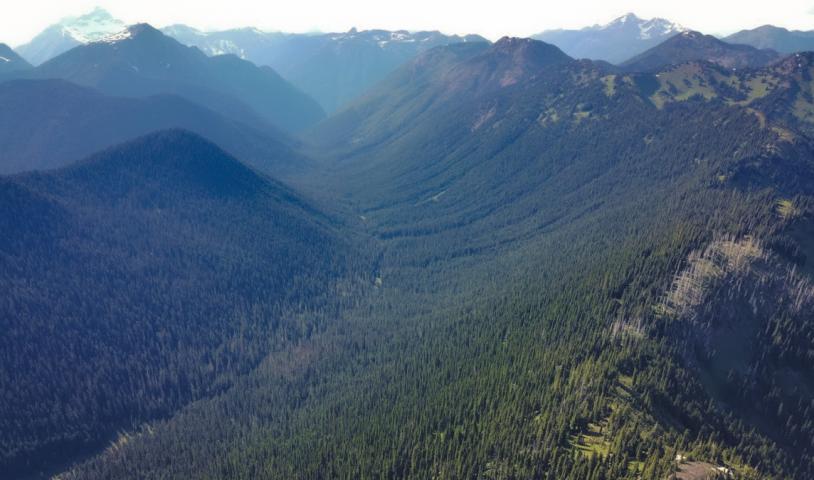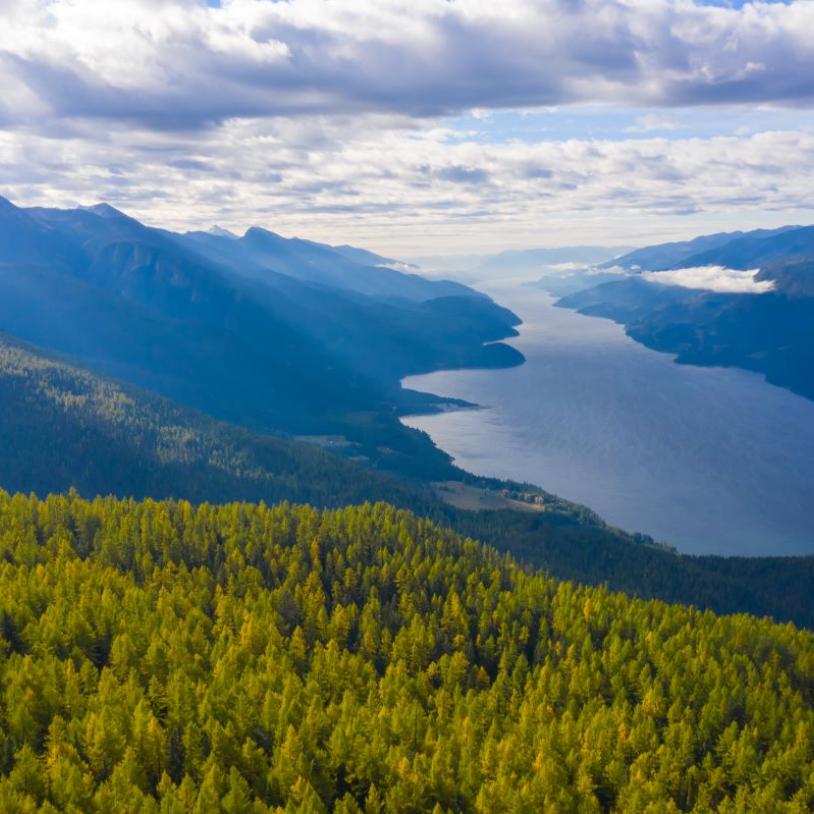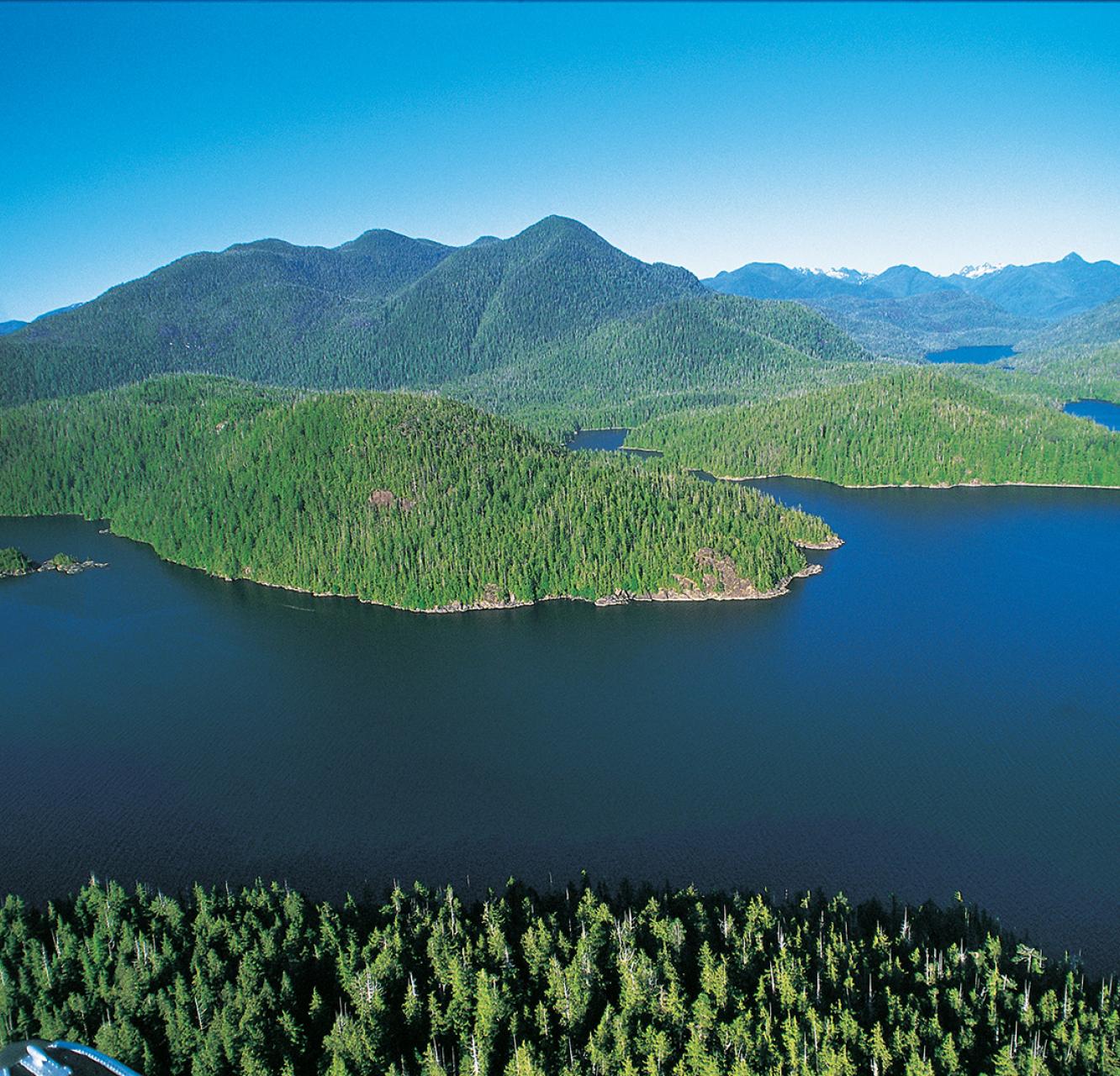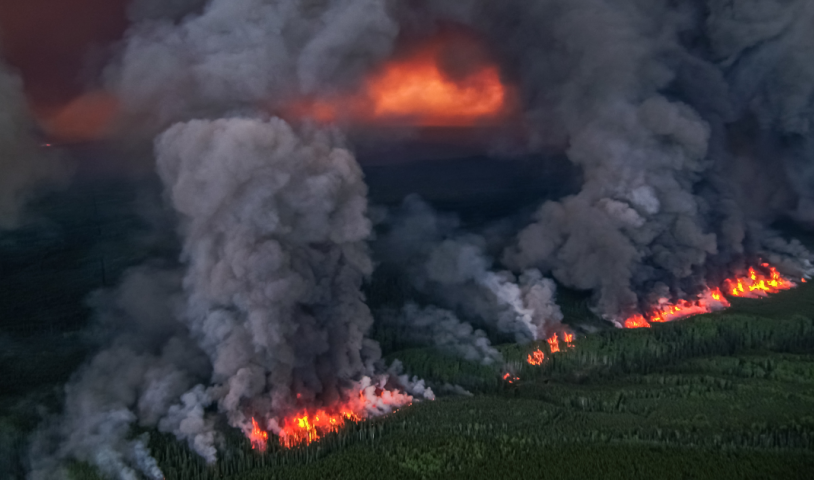Local Skagit County governments, tribes join opposition to mining in Skagit Headwaters
Wednesday, May 5, 2021
Opposition to Imperial Metals mining permit grows to more than 250, led by downstream stakeholders in Washington State concerned about impacts to drinking water, irrigation, salmon habitat and orca whale recovery
VANCOUVER, B.C. - Today, six local governments in Skagit County, Washington have joined an international coalition of more than 200 conservation, recreation and wildlife groups as well as local elected officials, businesses and Tribes and First Nations opposing a pending mining permit by Imperial Metals in the headwaters of the Skagit River. Despite a pending decision by the British Columbia government that is now two years old, opposition to the permit has increased 20% since January. Several new resolutions have been adopted as well as letters formally submitted to British Columbia Premier John Horgan opposing the permit. The most recent letters include:
- Letter from Seattle Mayor Jenny Durkan to British Columbia Premier John Horgan
- Resolution by the Samish Tribe opposing mining in the Skagit Headwaters
- Resolution from the city of Anacortes opposing mining in the Skagit Headwaters
- Resolution from the city of Mount Vernon opposing mining in the Skagit Headwaters
- Resolution from the town of Sedro Woolley opposing mining in the Skagit Headwaters
- Resolution from the Skagit Public Utility District opposing mining in the Skagit Headwaters
- Resolution from the Port of Skagit opposing mining in the Skagit Headwaters
“The opposition to proposed mining in the headwaters of the iconic Skagit River continues to grow and as downstream governments begin to learn about the mining threat,” said Tom Uniack, Executive Director for Washington Wild, a statewide conservation organization who is coordinating an international coalition of U.S. and Canadian stakeholders and Tribes and First Nations in opposition to the proposed mining and logging in the Skagit Headwaters. “The potential impacts to downstream values such as safe and clean drinking water, irrigation for local farms and agricultural businesses and recovery efforts for federally endangered salmon and orca whales are both unacceptable and unnecessary.”
The company proposing to mine in an unprotected area of the Skagit Headwaters, Imperial Metals, was responsible for the infamous Mount Polley mine disaster of 2014, which spilled more than ending 24 million cubic meters of wastewater laden with arsenic, lead, selenium and copper into the Fraser River watershed, one of the biggest environmental disasters in Canadian history.More than five years later, no charges or fines have been filed against Imperial Metals.
These headwaters are unceded Indigenous lands. The Swinomish, Upper Skagit, Stó:lō, Syilx and Nlaka’pamux people have accessed the Skagit headwaters forests, meadows and streams since time immemorial for essentials such as clean water, wild foods, ancient trees and other cultural materials needed for medicines and spirituality. The BC Government is currently engaged in formal consultation with 16 First Nations over concerns about the mining proposal.
In Washington State, several Tribes have formally opposed the mining permit because it could threaten their hard-fought treaty rights for hunting, fishing and gathering in the Skagit basin. The Swinomish Indian Tribal Community has passed a formal resolution opposing the mine and they, along with the Upper Skagit, Sauk Suitable and Samish Tribes, have all sent formal letters of opposition.
“The Swinomish Senate has expressed, in the strongest possible terms, its continued opposition to Imperial Metals’ permit proposal to explore for gold in the Skagit River Headwaters in British Columbia,” said Swinomish Tribal Chairman Steve Edwards. “Swinomish believe it is prudent and wise to continue efforts to actively oppose Imperial Metals’ gold exploration permit in the Skagit Headwaters, based on the direct ecological link between these headwaters and our homeland on the Skagit River and Salish Sea, the catastrophic failures of that company to protect salmon habitat and water quality in important headwaters, and due to the significant risks the gold mining proposal creates to salmon recovery efforts in the Skagit River Basin, which directly affect the exercise of our Treaty Rights and the ability of every citizen of Washington State to enjoy this priceless natural treasure. ”
The Skagit Watershed is a transboundary issue. Potential mining would impact recreational and economic benefits on the Canadian side of the border, as well as fisheries and water quality benefits as the Skagit River, flows through Washington State, winding through the scenic North Cascades National Park, the Mt. Baker Snoqualmie National Forest and through the renowned Skagit River Valley before reaching the Puget Sound. The Skagit River provides one-third of the freshwater inputs to the Puget Sound and supports the largest populations of threatened steelhead and Chinook salmon in the Puget Sound and the most extensive run of chum salmon in the conterminous U.S.
“This is an unacceptable risk to the lives and livelihoods of an entire region,” said Laurie Gere, Mayor of Anacortes which is situated near the mouth of the Skagit River. “The residents of Anacortes are connected to the Skagit River and rely on it for clean water, economic benefits, recreation and for the quality of life that makes this such a special place to live.” In a letter on behalf of the city of Anacortes to B.C. Premier John Horgan, Gere pointed out that the Skagit River is our last, best hope to recover diminishing salmon populations and we cannot allow one proposal to erase the millions of dollars of investment in salmon recovery over the past decades.
In addition to resolutions from the cities of Anacortes, Mount Vernon, Sedro Wooley, the Port of Skagit and the Skagit Public Utility District also passed a resolution opposing the mining.
“As the largest water purveyor in Skagit County, serving potable water to more than 80,000 people from mountain streams in the Skagit River Basin, we have an obligation to protect the source of our water,” said George Sidhu, P.E., General Manager of Skagit Public Utility District. “We cannot afford the chance of mining upstream contaminating
the Skagit River and our water supply with toxic chemicals such as arsenic, copper, lead, aluminum, and mercury.”
In 1984 a treaty was signed by the U.S. and Canada. The accompanying agreement was signed between British Columbia and the City of Seattle to resolve disputes over Ross Dam and to maintain the environmental integrity of the Skagit Watershed. In addition, it created the Skagit Environmental Endowment Commission (SEEC) to administer this collaborative partnership. Both governments established SEEC’s primary mission: (1) To conserve and protect wilderness and wildlife habitat, (2) To enhance recreational opportunities in the Skagit, and (3) To acquire mineral or timber rights consistent with conservation and recreational objectives. The letter argues that the proposed logging and mining in the “donut hole” is inconsistent with the spirit and intent of the 1984 treaty. It will significantly impact the wilderness, wildlife habitat, and fishery resources of the Upper Skagit River.
The Skagit Watershed is also critical to the health and well-being of British Columbia’s residents and local recreation-based economies. The current mining and logging threats are located in a “donut hole” shaped area sandwiched between Manning and Skagit Provincial Parks. Both parks and other recreational destinations are major outdoor recreation destinations just a day trip from the greater Vancouver metro area and draw more than a million visitors each year. The proposed mining activities include creating access roads, conducting surface exploration drilling with associated water supply and catchment sumps, and mechanical trenching over a five-year period of continued disturbance.
"After a century of blasting, drilling and tunnelling to find a workable mine with no luck whatsoever, it's time for British Columbia to extinguish Imperial Metals' mineral tenure in the Skagit Headwaters Donut Hole and then, with First Nations, protect the place,” said Joe Foy, Protected Areas Campaigner, Wilderness Committee. “B.C. must also enforce an Imperial Metals cleanup of the site, which is strewn with a hundred years worth of garbage, waste rock and mine drainage left behind by years of fruitless exploration."
Prior to the pending mining threat, the Donut Hole area of the Skagit Headwaters was threatened by clearcut logging. In December 2019, Doug Donaldson, British Columbia Minister of Forests, Lands Natural Resource Operations and Rural Development announced a ban on future logging in the Skagit Headwaters as a direct response to the opposition by this international coalition.
“We are thrilled to see the coalition for the protection of the Skagit Headwaters continue to grow,” said Tori Ball, Senior Campaigner for Canadian Parks and Wilderness Society - British Columbia. “The Skagit-Manning Donut Hole holds important cultural, economic and ecological values that are currently at risk from the looming mining threat. It is time for this long-standing issue to be addressed by the B.C. government and the area be given long-term protection, similar to its surrounding landscapes.”
–30–
CONTACTS:
Tom Uniack, Washington Wild (206) 369-1252
Joe Foy, The Wilderness Committee (604) 880-2580
Amy Trainer, Swinomish Indian Tribal Community, (360) 399-5804
Laurie Gere, Anacortes Mayor, (360) 299-1950





